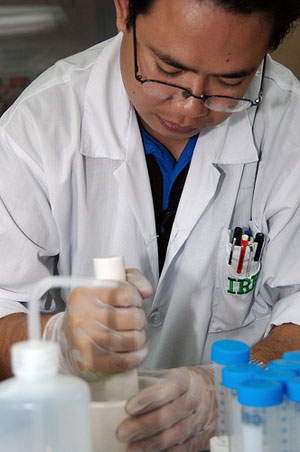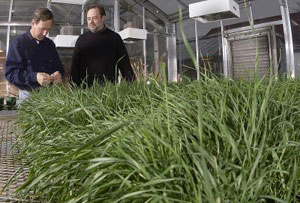Agricultural/Horticultural Scientist
Tasks & duties

Agricultural/horticultural scientists may do some or all of the following:
-
find ways to improve the quality and value of animal or crop production
-
develop farming methods to protect animal welfare and the environment
-
develop vaccines and other products to improve animal health and productivity
-
conduct experiments to find ways to control pests and diseases
-
analyse the results of experiments
-
supervise technical and research staff
-
advise farmers, vets, and horticultural and agricultural companies
-
read research papers by other scientists
-
write about their work for scientific and farming magazines
-
present reports at conferences
-
maintain contact with other scientists nationally and internationally
-
write applications for funding grants for agricultural/horticultural research
-
manage research budgets
Specialisations
Scientists working in agriculture and horticulture may specialise in various branches of science. These include:
-
agronomy and crop science
-
farm systems such as irrigation
-
microbiology
-
plant and animal physiology
-
genetics
-
animal nutrition
-
animal reproduction
Skills & knowledge

Agricultural/horticultural scientists need to have:
-
knowledge of crops, pastures and soil types
-
knowledge of farm animals
-
understanding of physiology and biology
-
knowledge of agricultural and horticultural chemicals, pests and diseases
-
research skills
-
skill in analysing and interpreting research results and other information
-
practical skills for performing experiments and operating scientific equipment
-
problem-solving skills
-
planning and organisational skills
-
communication skills
-
writing skills, for writing reports and for publications
-
maths and computer skills
-
public speaking skills and the ability to give presentations
Entry requirements
To become an agricultural/horticultural scientist you need a minimum of a Bachelor's degree in science, such as a general BSc or Bachelor of Agricultural Science (BAgriScience). However, a Master's degree or PhD is often preferred by employers.
Secondary education
A tertiary entrance qualification is required to enter further training. Year 12 Certificate of Education or Higher School Certificate equivalent agriculture, biology, chemistry, maths, computer studies and English is preferred.
Training on the job
Many skills are gained on the job. Agricultural and horticultural companies often send scientists on training courses to learn the latest scientific techniques.
Agricultural/horticultural scientists may also attend computer courses, safety courses including handling radioactive materials, and courses for innovative thinking and personal development.
Useful experience
Useful experience for agricultural/horticultural scientists includes farming, horticultural work, environmental work, and work as a technician.
Related courses
Agricultural Science
Biochemistry and Cell Biology
Botany
Crop Production
For more information, please refer to myfuture.
Document Actions
